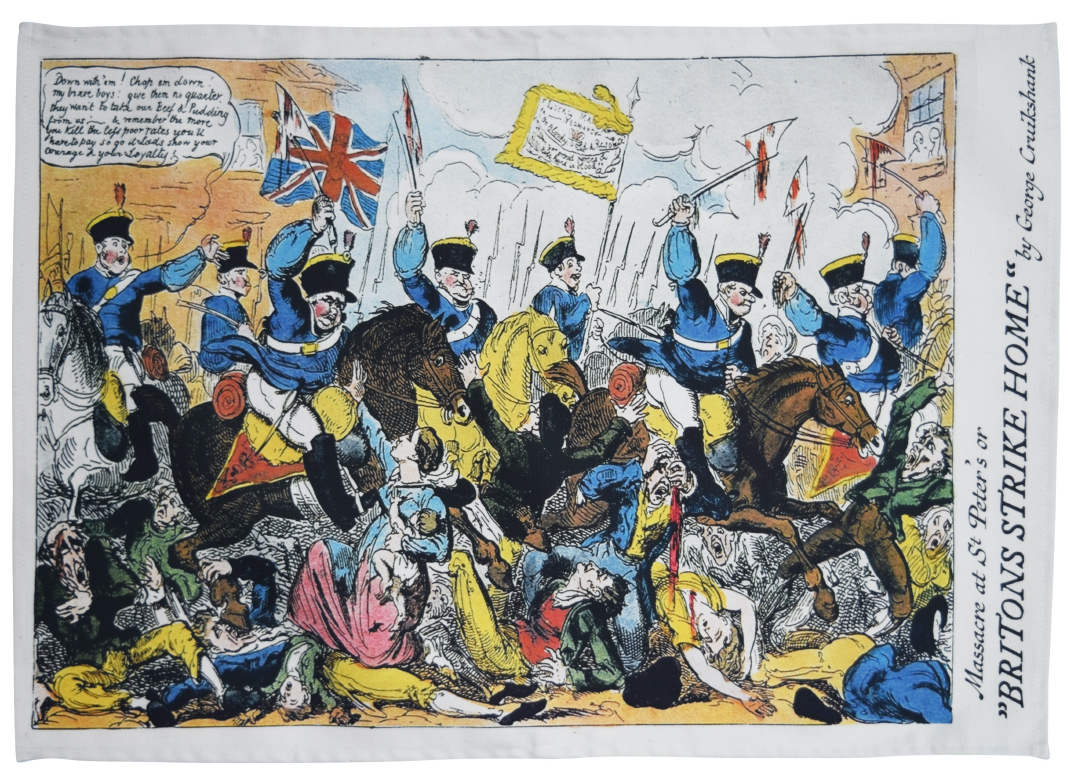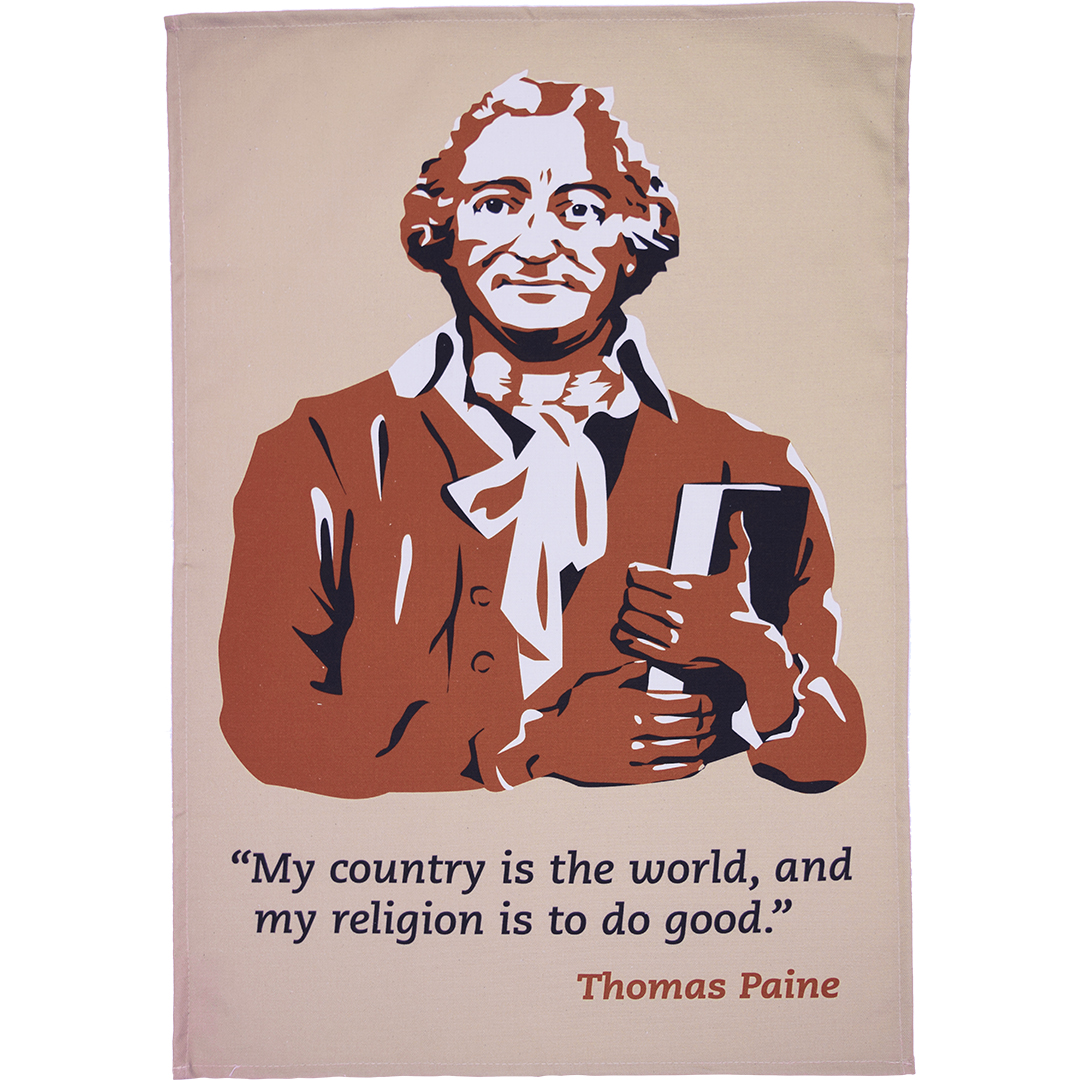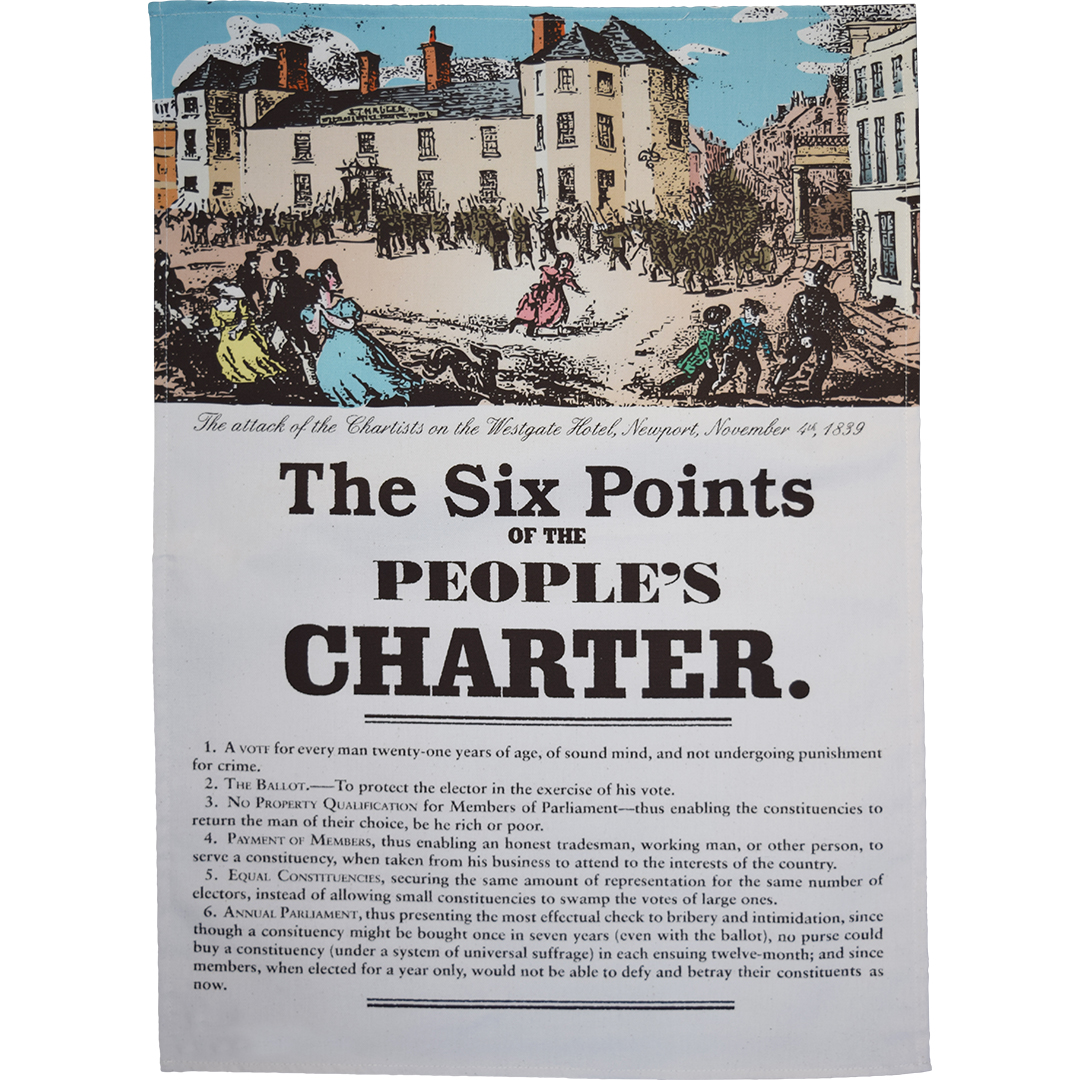Radical Major, Major Radical: The Life of Major John Cartwright
Posted by Pete on 17th Sep 2021
Known as the 'Father of Reform', John Cartwright paved the way for the democratic campaigns of the 19th and 20th centuries...
In the summer of 1819, the Manchester Patriotic Union organised a mass rally for universal manhood suffrage.
Among those invited to speak but unable to attend was the veteran democrat, Major John Cartwright.
Born on this day in 1740, Cartwright was one of the most well-known radical figures of his day.
And by this point in 1819, he had already had a long career in radical politics.
Cartwright was lucky not to be in Manchester for the 1819 rally, which turned out to be one of British history's bloodiest protests.
Click to view our Peterloo Massacre tea towel
Cartwright came from a solidly middle-class family, and his first life was in the military: he joined the Royal Navy when he was eighteen years-old, serving in several battles against France during the Seven Years’ War (1756-63).
Ill-health may have ended Cartwright’s active service in 1771, but it was his political disobedience that led to him being pushed out of the Navy altogether.
When the American colonists began protesting against Parliamentary overreach, Cartwright followed other English radicals like Tom Paine and Richard Price in supporting them.
He published a pamphlet in 1774 – ‘American Independence: The Glory and Interest of Great Britain’ – supporting the rebels, and refused to serve in the British force being sent to put them down.
Cartwright was moved out of the Royal Navy to a smaller posting as Major of the Nottinghamshire Militia. That’s how he came to be known as ‘Major Cartwright’.
Demotion, however, only encouraged his radical politics, and Cartwright turned from injustice in North America to injustice in Great Britain.
Any eighteenth century radical would have read Thomas Paine's Common Sense, a pamphlet advocating American Independence.
Click to view our Thomas Paine tea towel
In 1776, Cartwright published Take your Choice. It was one of the first pamphlets to demand democratic reform of Parliament.
The 18th century House of Commons was a bad joke. Claiming to represent the people, it was actually a corrupt plutocracy. The franchise was obscenely narrow.
A tiny fraction of rich men, and no women, were allowed to vote. This wasn’t democracy or anything close.
Major Cartwright stepped up to demand sweeping reforms: universal manhood suffrage, secret ballots, annual parliaments.
And he didn’t stop when British political life became extremely repressive in response to the French Revolution.
During the 1790s, Cartwright was uncowed by government efforts to intimidate, imprison, and in some cases execute those advocating democratic reform in Britain.
In 1794, he spoke as a witness for the defence in the ludicrous trial of his radical comrades, John Horne Tooke, John Thelwall, and Thomas Hardy.
And once the war with France was being won, Cartwright played a leading role in reviving British Radicalism.
Long before the People's Charter was written, Cartwright had been campaigning for many of its demands, like universal male suffrage.
Click to view our People's Charter tea towel
By now in his seventies, he began setting up ‘Hampden Clubs’ from 1812.
Named after the famous republican of the English Revolution, John Hampden (1595-1643), these Clubs united working-class and middle-class Radicals in the cause of democratic reform.
It was the Peterloo Massacre – perpetrated by government cavalry against the Manchester meeting which Cartwright had been unable to attend – which unleashed a new wave of repression in 1819.
But Cartwright was uncowed. He’d seen it all before.
A few weeks after Peterloo, he was arrested in Birmingham for speaking up for parliamentary reform despite a massive government crackdown following the Massacre.
In his final years, Major Cartwright wrote a book, The English Constitution, continuing to demand democracy in England.
He sent a copy to fellow octogenarian, Thomas Jefferson, in the US. Jefferson responded:
“Your age of eighty-four, and mine of eighty-one years, ensure us a speedy meeting. We may then commune at leisure, and more fully, on the good and evil, which in the course of our long lives, we have both witnessed; and in the mean time, I pray you accept assurances of my high veneration and esteem for your person and character.”
Shortly after, Cartwright died on 23 September 1824.
Democratic government in the British Isles, the dream of his life, had not yet been achieved.
But such roads are long. Over the next century, the Chartists, suffragettes, and labour movement built a democracy on these islands.
Key dates in John Cartwright's life
- 17 September 1740: John Cartwright born in Marnham, Nottinghamshire
- 1758: Cartwright joins the Royal Navy
- 1774: Cartwright publishes ‘American Independence the Glory and Interest of Great Britain’ in defence of the North American rebels
- 1775: Cartwright becomes a Major in the Nottinghamshire Militia
- 1776: Cartwright publishes Take your Choice in support of parliamentary reform in Britain
- 1780: Cartwright co-founds the reformist Society for Constitutional Information, from which the better-known London Corresponding Society would emerge
- 1789: French Revolution begins
- 1794: Cartwright speaks in defence of his Radical friends, John Horne Tooke, John Thelwall, and Thomas Hardy, in court
- 1812: Cartwright launches the reformist Hampden Clubs
- 1819: Cartwright fined £100 for speaking in favour of democratic reform amid the post-Peterloo crackdown
- 1823: Cartwright publishes The English Constitution
- 23 September 1824: John Cartwright dies in London



